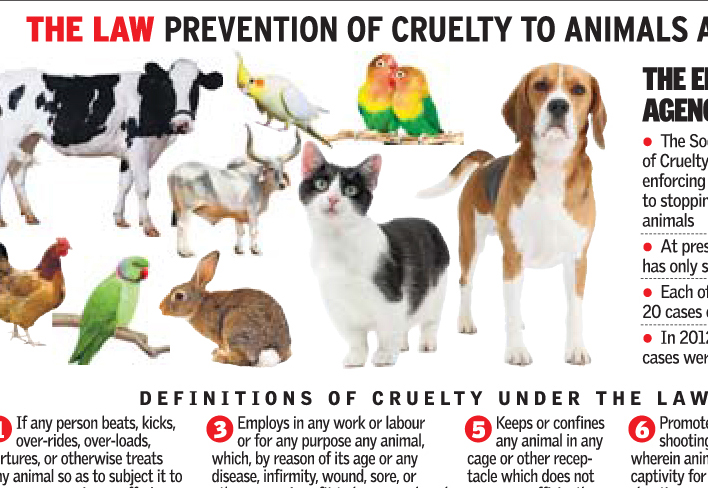Animal cruelty is an abhorrent act that not only inflicts harm on living beings but also reflects deeper societal issues. As we navigate through the laws designed to protect our animal companions, it becomes crucial to comprehend the nuances of animal cruelty legislation. This exploration reveals the various legal frameworks, potential penalties, and the societal implications tied to punitive measures against such acts. Understanding whether animal cruelty is punishable by law invites us to reflect on the values we uphold regarding compassion and responsibility towards non-human entities.
In many jurisdictions, animal cruelty is codified into law, making it a criminal offense. However, the interpretation of what constitutes animal cruelty varies significantly across regions. At its core, animal cruelty can be categorized into two types: active cruelty, which involves the intentional harm or neglect of animals, and passive cruelty, which may arise through neglect or failure to provide necessary care. This bifurcation allows for a spectrum of legal responses, from misdemeanors to felonies, depending on the severity of the act and the jurisdiction in question.
The legal definitions of animal cruelty often encompass a range of harmful behaviors, including physical violence, psychological abuse, and inadequate living conditions. For instance, in some states, laws stipulate that failing to provide food, water, shelter, or veterinary care may qualify as neglect, thereby falling under the umbrella of animal cruelty. The continued evolution of these laws indicates a growing recognition of animals as sentient beings deserving of protection and respect.
When someone is found guilty of animal cruelty, the range of penalties can be extensive. Fines are commonly imposed, aiming to serve as a deterrent against future offenses. These monetary penalties can vary dramatically, depending on the severity of the cruelty and the laws of the specific locality. In more egregious cases, fines may reach thousands of dollars, reflecting society’s evolving stance on the reprehensibility of such actions.
In addition to fines, individuals convicted of animal cruelty may face jail time. Lengthy sentences can be a reality for those engaging in extreme cases of abuse or neglect. Sentencing often considers the perpetrator’s history, the harm inflicted on the animal, and the public outcry surrounding the case. Community sentiment plays a critical role in judicial proceedings, often influencing the trajectory of the legal response.
In certain circumstances, punitive measures may extend beyond immediate fines or incarceration. Courts may impose restitution, requiring the offender to cover veterinary bills or costs associated with rehabilitating the abused animal. Furthermore, some jurisdictions allow for the prohibition of pet ownership as part of sentencing. This reflects a broader commitment to ensuring that individuals who have demonstrated an inability to provide proper care are barred from further harming animals.
Animal cruelty laws also present a fascinating intersection between legal frameworks and societal values. In many cases, the enactment of stricter laws is propelled by activism and advocacy from animal rights groups who tirelessly work to bring attention to the plight of abused animals. Public campaigns, educational programs, and lobbying efforts play an essential role in shaping legislation, underscoring the collective responsibility to protect vulnerable beings.
While the legal ramifications of animal cruelty demonstrate a societal commitment to safeguarding animals, they also hint at unresolved tensions within cultural attitudes. The debate surrounding animal rights and welfare evokes deep philosophical questions regarding humanity’s relationship with non-human beings. As we navigate these complexities, it becomes evident that the legal system functions not just as a punitive measure but as a reflection of our collective ethical stance toward animals.
Enforcement of animal cruelty laws presents its own set of challenges. It requires that law enforcement officers be trained in recognizing the signs of animal cruelty and understanding the nuances of relevant legislation. Additionally, public reporting mechanisms play a crucial role. Witnesses to suspected abuse are often hesitant to come forward due to fears of retaliation or disbelief from authorities. Ensuring that there are effective channels for reporting and investigating alleged cruelty is vital to holding offenders accountable.
Judicial outcomes from animal cruelty cases often resonate beyond the courtroom. High-profile cases garner media attention and spark public discussions, leading to increased awareness about animal welfare issues. This highlights a stark observation: while laws exist, the consistency with which they are enforced can vary greatly. In some instances, offenders receive lenient sentences, raising questions about the adequacy of penalties in deterring future cruelty.
Moreover, cultural context can influence how animal cruelty is perceived and punished. In some societies, traditional practices involving animals may clash with the modern understanding of animal rights, resulting in ongoing tensions. Recognizing these cultural differences is essential in crafting legislation that honors both local customs and the global mandate for humane treatment of animals.
As society progresses, the pursuit of justice for animals may continue to evolve. Advocates for animal rights remain vigilant, pushing for stricter laws and better enforcement, while educating communities about the significance of empathy and compassion towards all living beings. The legal framework surrounding animal cruelty not only serves as a mechanism for punishment but also as a pivotal platform for advancing societal values concerning the treatment of animals.
In conclusion, the question of whether animal cruelty is punishable by law is not merely an inquiry into legislation; it is a reflection of our collective conscience. Striking a balance between punishment and prevention requires ongoing dialogue about the roots of cruelty and the humanity we aspire to uphold. As public awareness grows, so too does the potential for meaningful change, fostering a society that champions kindness towards all living creatures.








